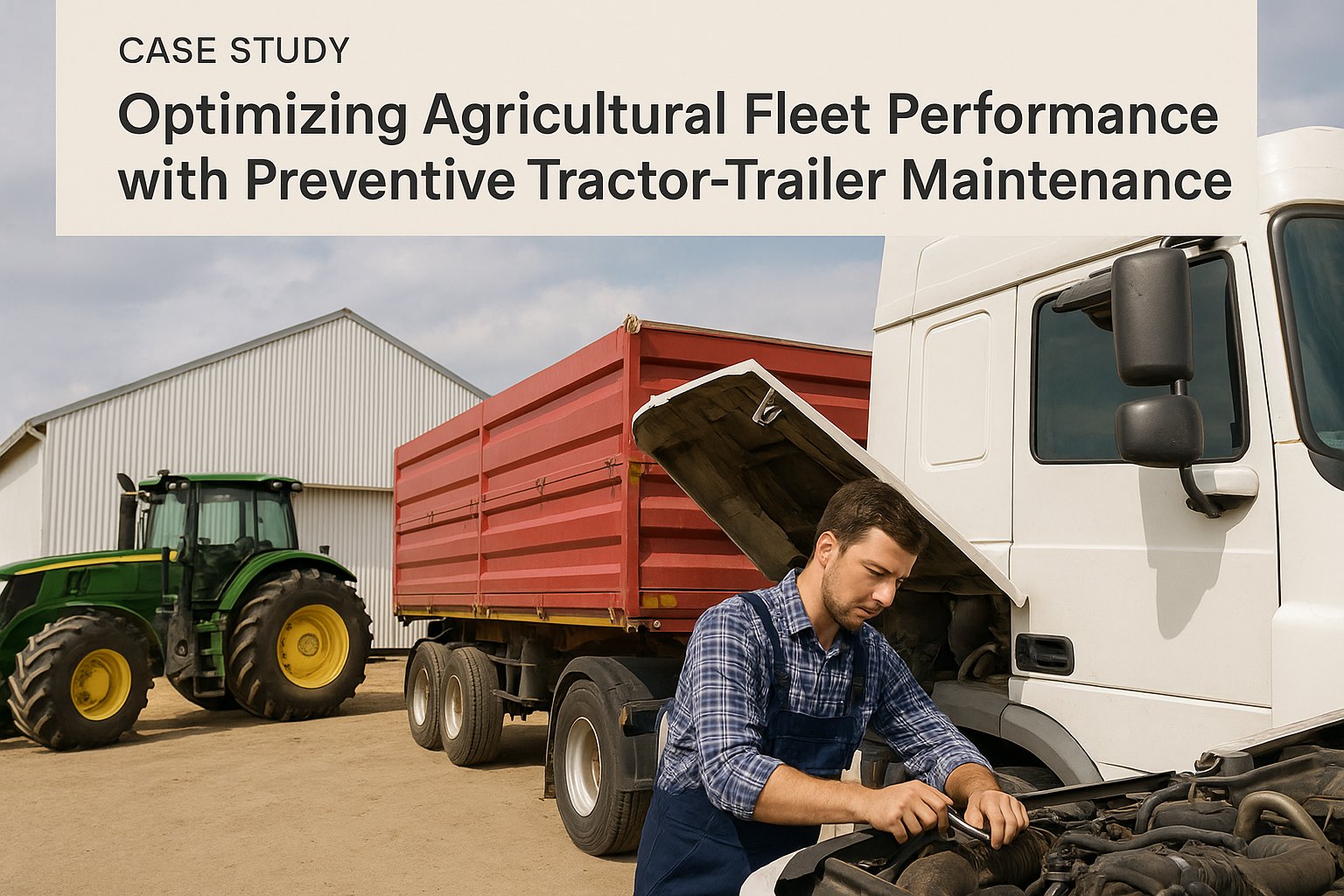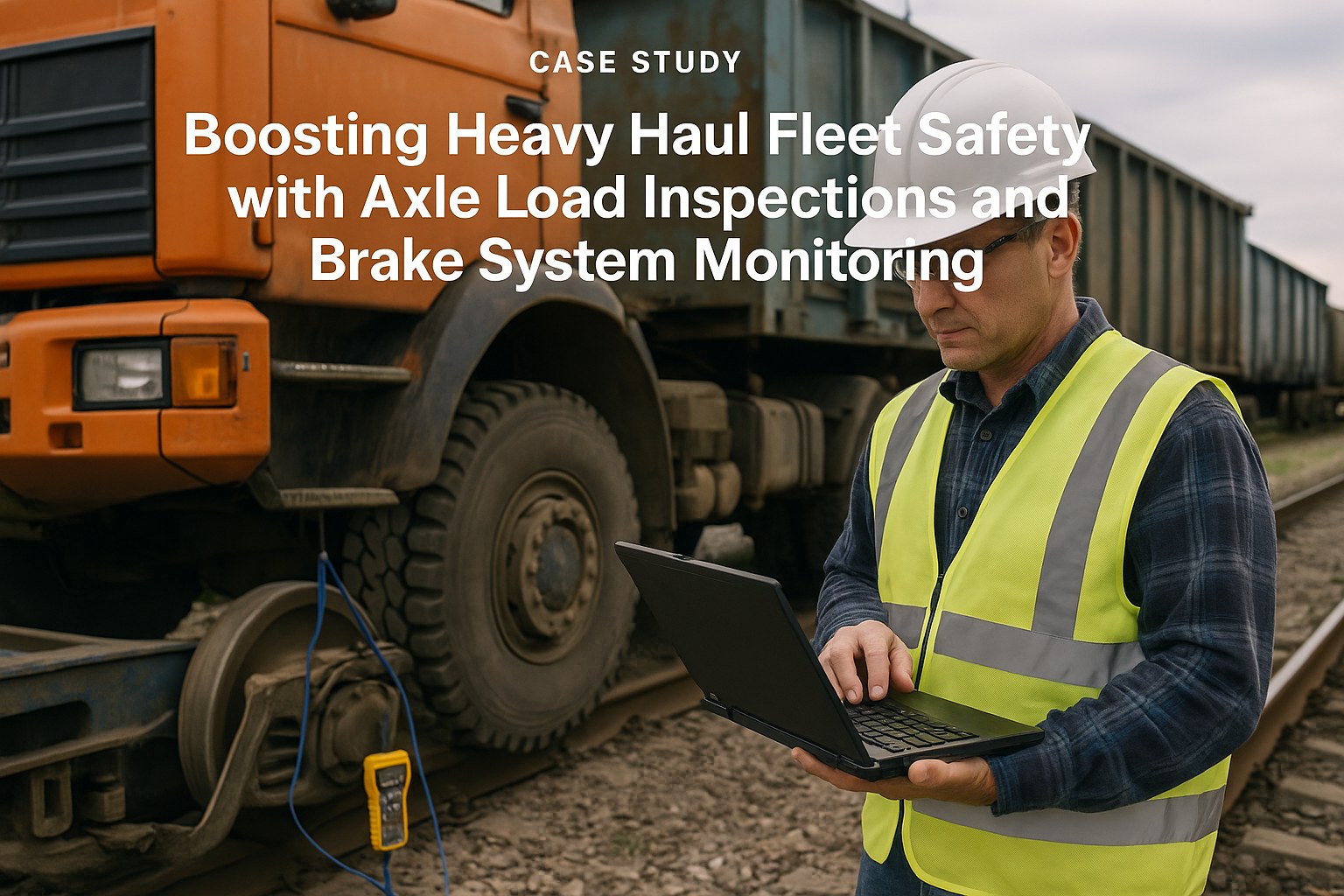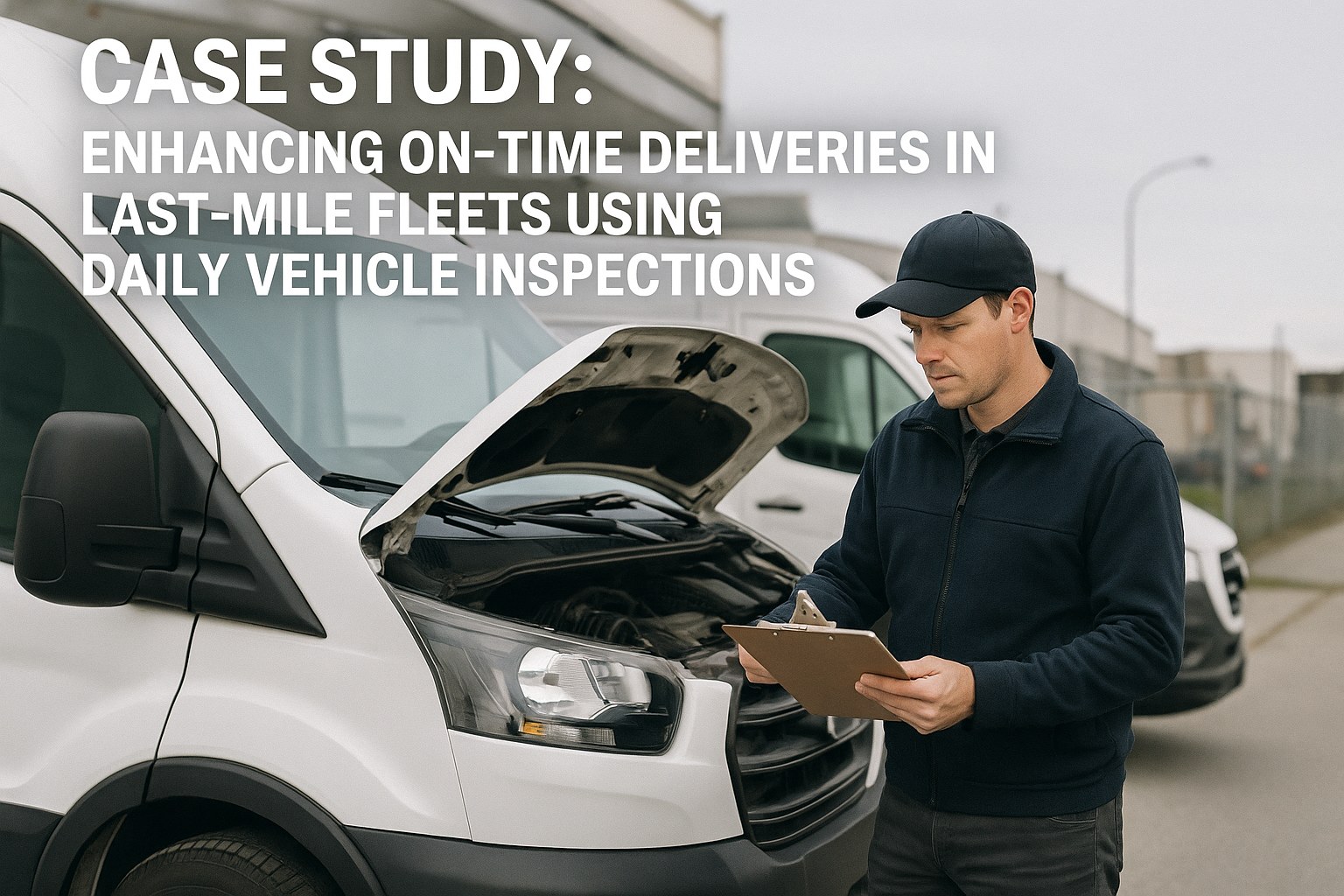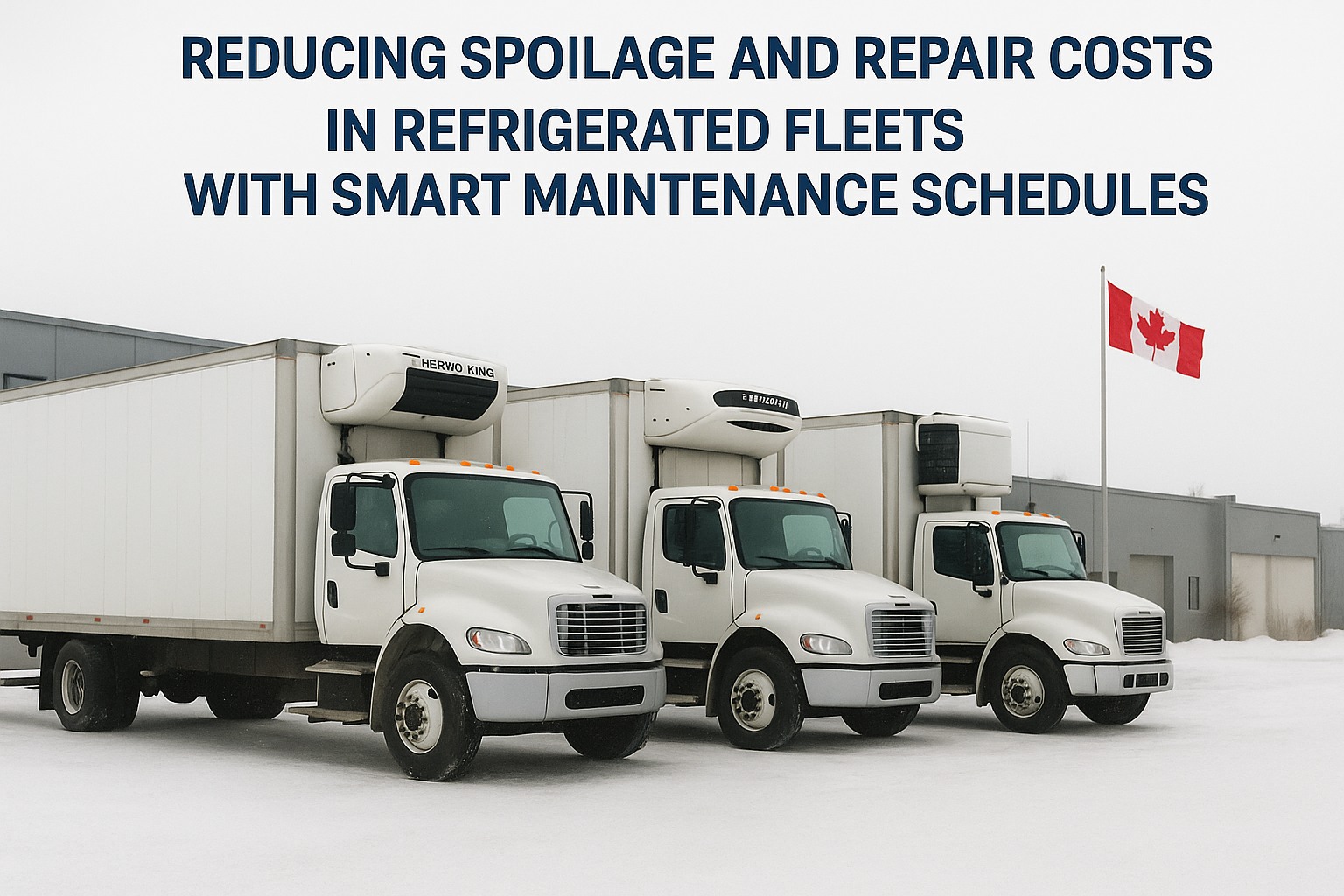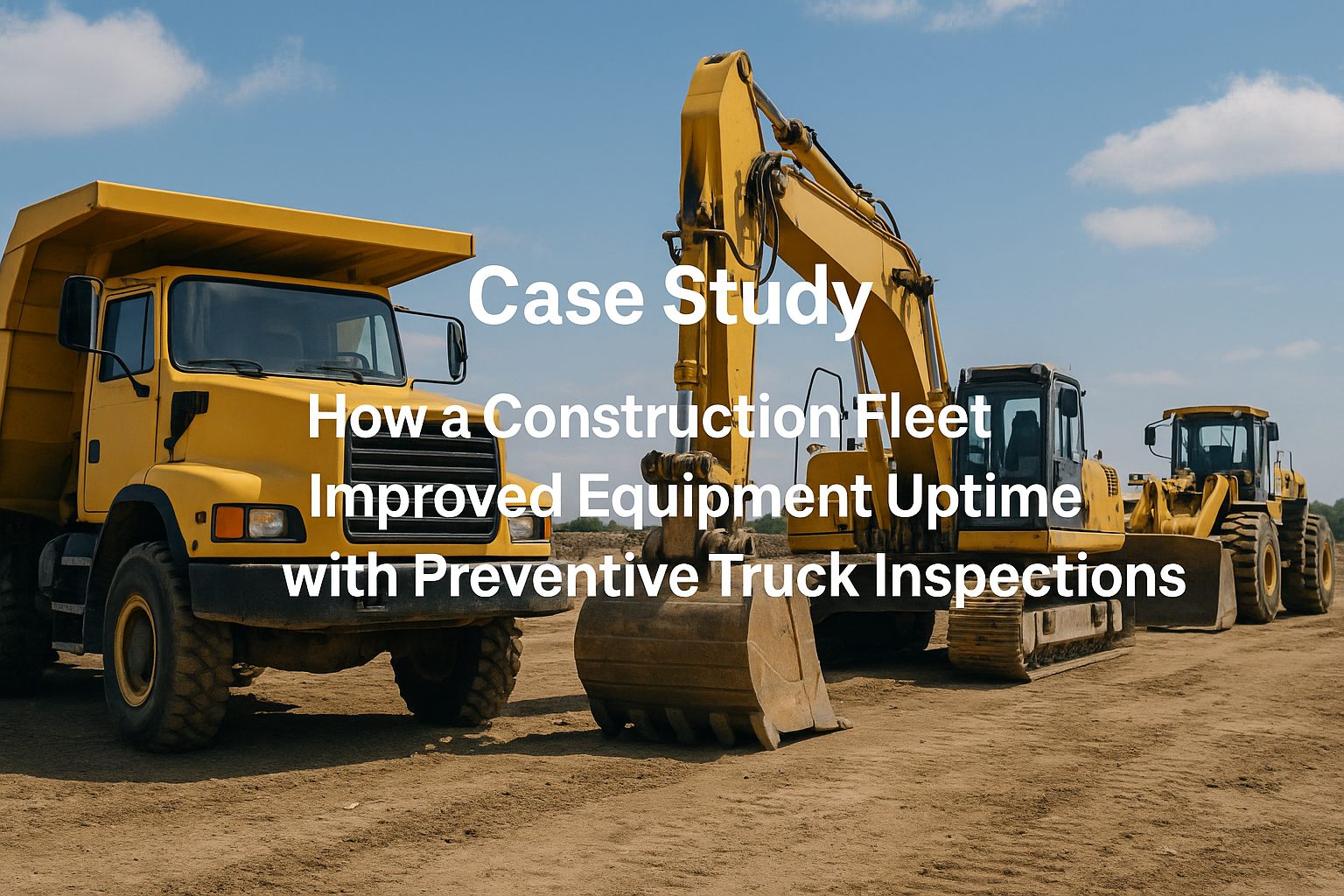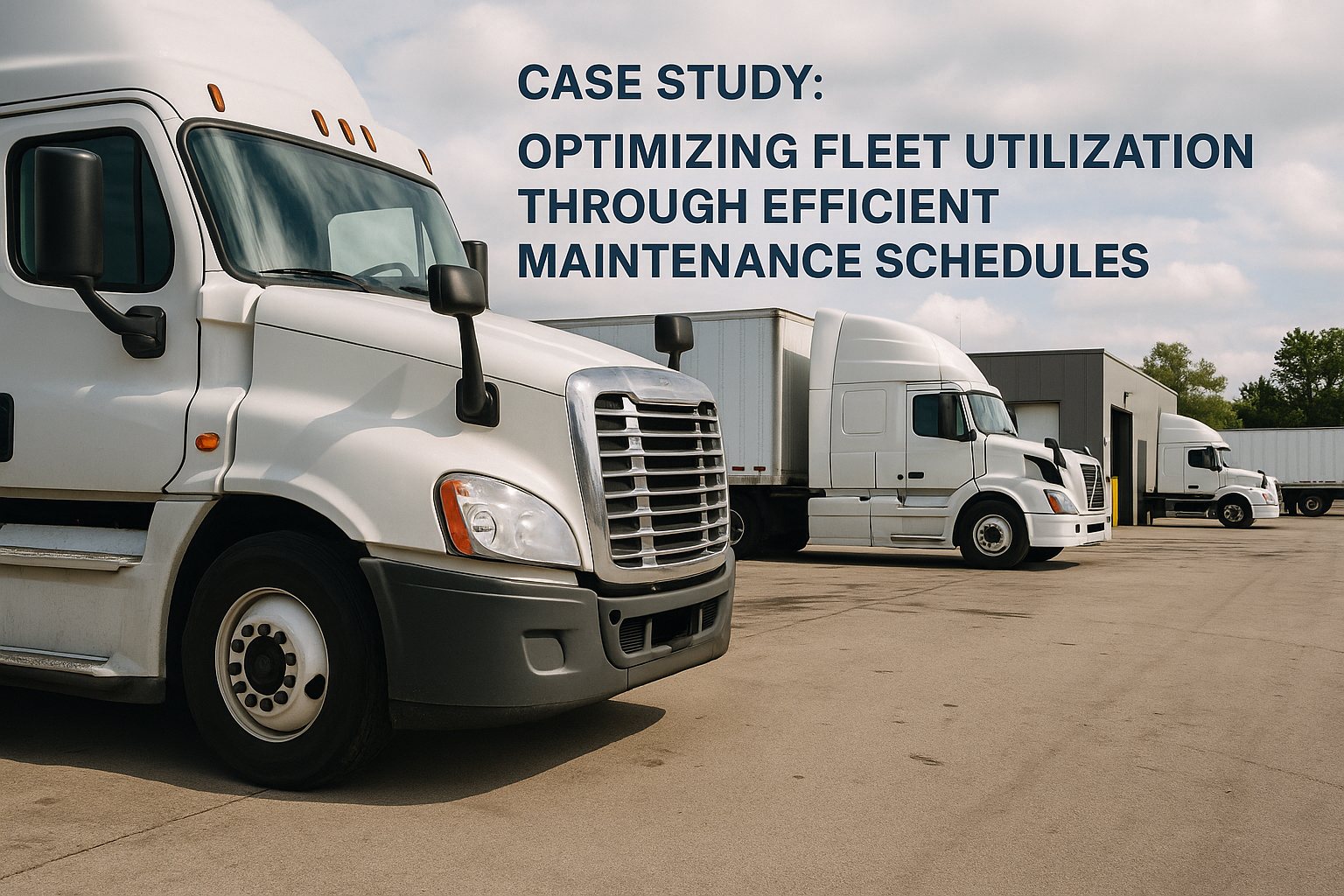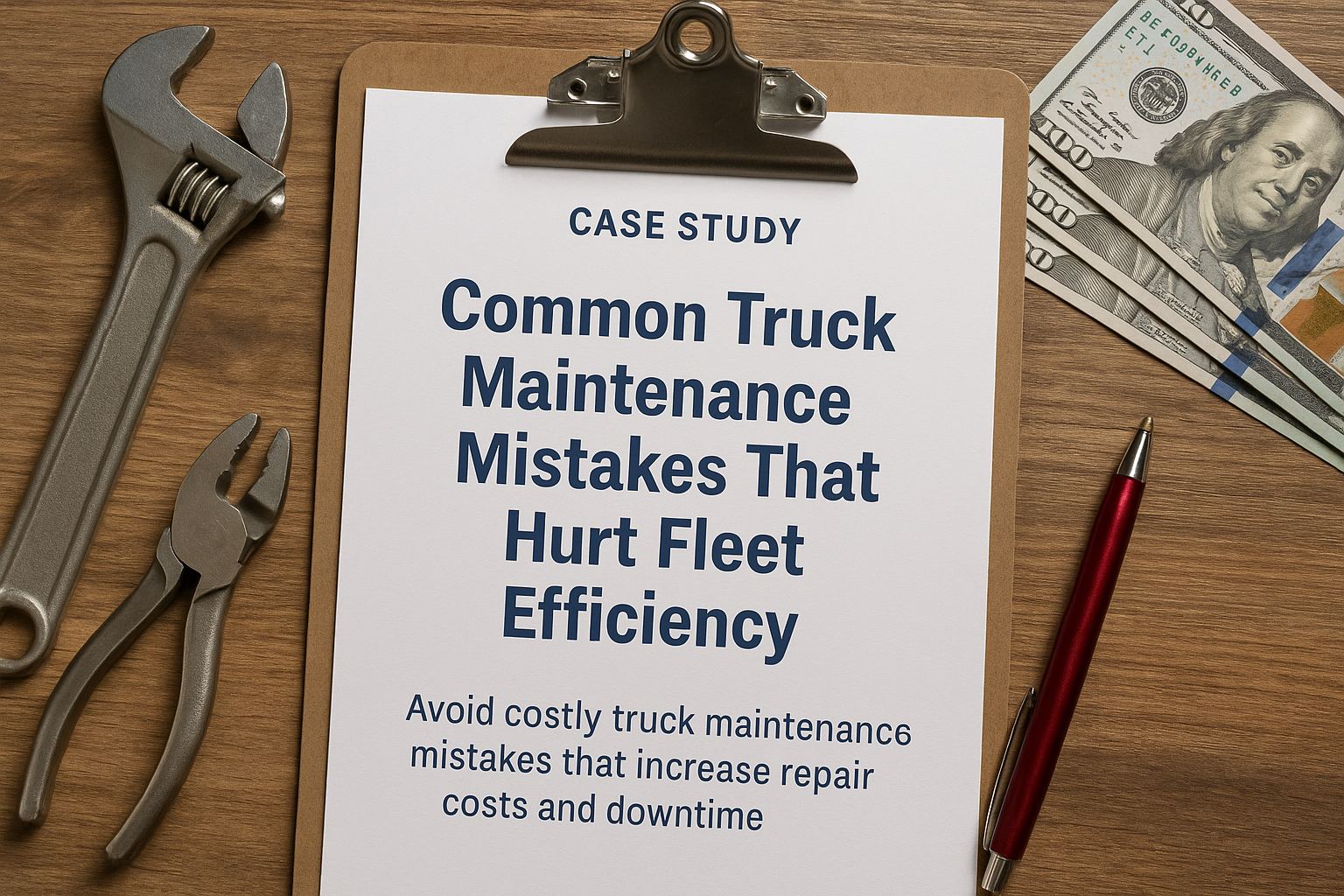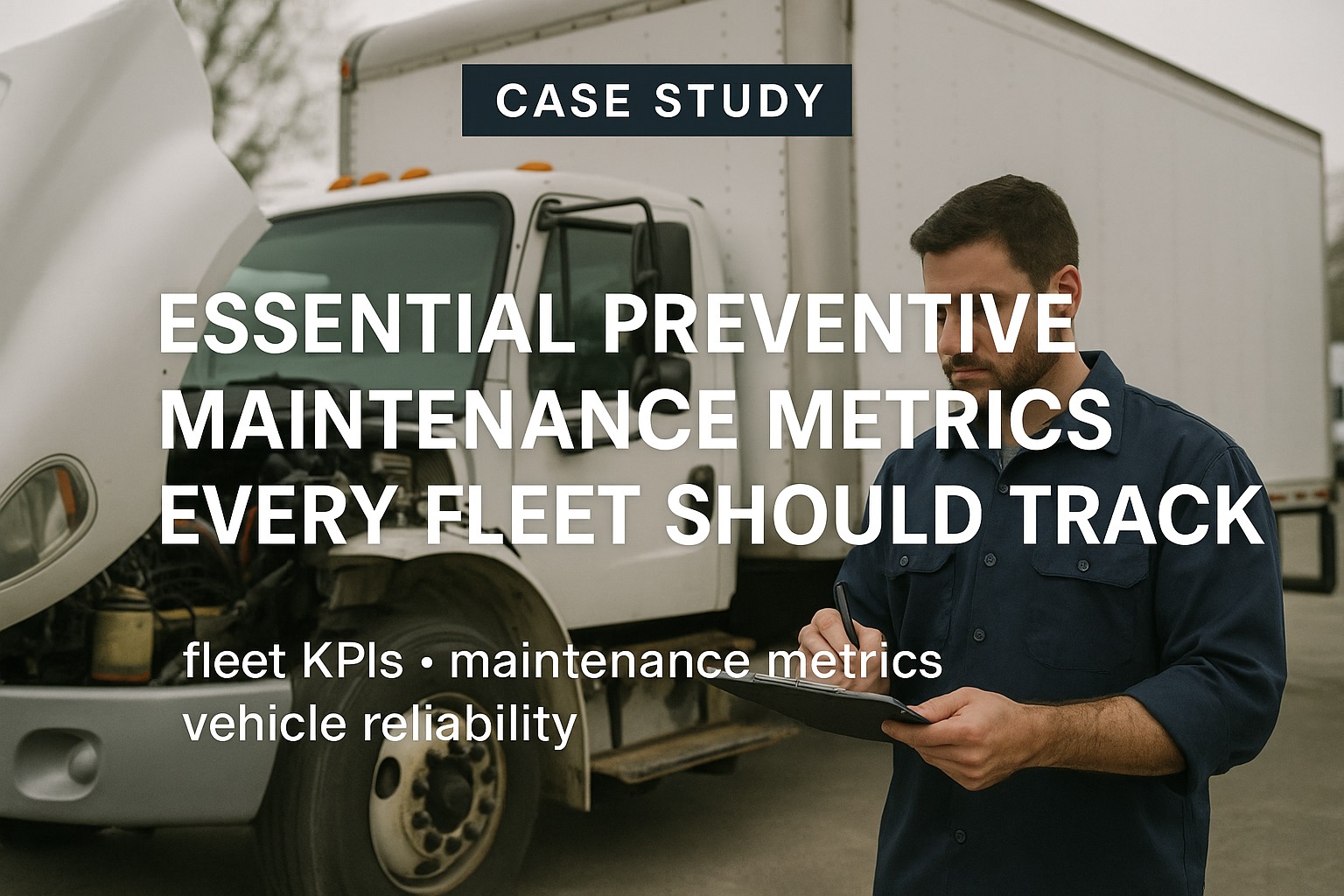In 2024, India's agricultural sector faced unprecedented challenges with rising fuel costs, equipment breakdowns during critical harvest seasons, and increasing regulatory scrutiny from state transport authorities. For agricultural operations managing mixed fleets of tractors, trailers, and transport vehicles, preventive maintenance has evolved from optional practice to essential strategy. This comprehensive case study reveals how leading Indian agricultural enterprises are transforming tractor-trailer maintenance from a seasonal afterthought into a year-round competitive advantage through innovative preventive care programs.
The convergence of modern farming demands and transportation requirements presents unique challenges for agricultural fleet managers. Much like manufacturing facilities managing critical production equipment through sophisticated maintenance systems, modern agricultural operations require equally robust approaches to tractor-trailer maintenance. The stakes are remarkably high: equipment failures during planting or harvest seasons can result in catastrophic crop losses, while regulatory violations can halt entire supply chains.
Consider this: A single tractor breakdown during peak harvest can cost ₹2-5 lakhs per day in lost productivity, while trailer failures can result in crop spoilage worth ₹10-15 lakhs. Yet, agricultural enterprises implementing comprehensive preventive maintenance programs report 87% fewer critical breakdowns while simultaneously reducing overall maintenance costs by 42%. This case study examines how three major Indian agricultural operations achieved these remarkable results.
Understanding Agricultural Fleet Challenges in India
Agricultural fleet management in India encompasses unique challenges absent from traditional transportation sectors. Seasonal intensity, diverse equipment types, and harsh operating conditions create complexity requiring specialized maintenance approaches tailored to farming operations.
Critical Agricultural Fleet Components:
- Primary tractors for field operations and material handling
- Agricultural trailers for crop transportation and storage
- Specialized implements requiring regular calibration and maintenance
- Support vehicles for workforce and supply transportation
- Harvest equipment with intensive seasonal usage patterns
- Cold chain vehicles for perishable produce transportation
The parallels between agricultural fleet maintenance and industrial equipment management are striking. Just as factories rely on preventive maintenance to ensure production continuity, agricultural operations must maintain their fleets with equal precision. Both face seasonal peaks, regulatory compliance requirements, and the imperative to maximize asset utilization while controlling costs.
Case Study 1: Punjab Agro Cooperative's Transformation
Punjab Agro Cooperative, managing 450 tractors and 300 trailers across 12 districts, faced a maintenance crisis in 2023. With breakdown rates climbing during critical seasons and maintenance costs spiraling out of control, they implemented a revolutionary preventive maintenance program that would become the industry benchmark.
The Challenge
Before transformation, Punjab Agro struggled with reactive maintenance practices resulting in frequent equipment failures during critical agricultural seasons. Their challenges included:
- Average of 23 major tractor breakdowns per month during harvest season
- ₹1.8 crores in emergency repair costs over 18 months
- 37% of trailers failing safety inspections
- Crop losses exceeding ₹75 lakhs due to transportation delays
- No centralized maintenance tracking across distributed locations
The Solution
Punjab Agro implemented a three-phase approach integrating technology, traditional wisdom, and modern maintenance practices. Their solution adapted industrial maintenance principles to agricultural realities.
Phase 1: Digital Transformation
The cooperative deployed a cloud-based fleet management system providing real-time visibility into equipment health, maintenance schedules, and operational status. This platform integrated with existing farm management systems, creating comprehensive operational intelligence.
Phase 2: Seasonal Maintenance Protocols
Punjab Agro developed maintenance schedules aligned with agricultural seasons, ensuring peak equipment readiness during critical periods. Pre-season intensive maintenance, mid-season quick checks, and post-season comprehensive overhauls became standard practice.
Phase 3: Operator Training Initiative
Recognizing that operators are the first line of defense, the cooperative invested heavily in training programs. Tractor operators learned daily inspection routines, basic troubleshooting, and proper operating techniques that extend equipment life.
Results and ROI
Within 12 months of implementation, Punjab Agro Cooperative achieved remarkable results exceeding all projections:
- Operational Excellence: Equipment breakdown rate dropped from 18% to 1.4% during harvest
- Cost Optimization: Total maintenance costs decreased by 48% through preventive measures
- Productivity Gains: Field operation efficiency improved by 35% with reliable equipment
- Safety Improvements: Zero reportable accidents for 14 consecutive months
- Financial Impact: ROI of 312% within the first year
Case Study 2: Maharashtra Sugar Mills Fleet Revolution
Maharashtra Sugar Mills, operating 275 tractors and 400 specialized sugarcane trailers, faced unique challenges transporting time-sensitive crops from fields to mills. Their story demonstrates how targeted preventive maintenance can revolutionize agricultural logistics.
The Innovation Approach
Maharashtra Sugar Mills took a data-driven approach to maintenance, implementing IoT sensors and predictive analytics to anticipate equipment failures before they impacted operations. Their system monitored everything from engine parameters to trailer load distribution, creating a predictive maintenance ecosystem preventing failures before they occurred.
Key innovations included automated maintenance scheduling synchronized with crushing schedules, predictive component replacement based on usage patterns and load data, and mobile maintenance teams performing repairs at collection centers. Their integration with mill operations for seamless logistics coordination reduced cane deterioration by 71%.
Building Your Agricultural Fleet Preventive Maintenance Program
Creating a world-class preventive maintenance program for agricultural fleets requires understanding unique operational demands while applying proven maintenance principles. Based on insights from industry leaders, here's a comprehensive framework for building your program.
Step 1: Seasonal Assessment and Planning
Begin with thorough assessment considering agricultural cycles and operational patterns. This mirrors the approach industrial facilities take when implementing maintenance systems, adapted for farming realities.
Agricultural Fleet Assessment Checklist:
- Analyze past 24 months of breakdown data by season and equipment type
- Calculate true cost of breakdowns including crop losses and delays
- Map maintenance requirements to agricultural calendar
- Assess operator skill levels and training needs
- Review spare parts availability and supply chain reliability
- Benchmark against progressive agricultural operations
Step 2: Technology Selection
Choose a fleet management system providing comprehensive tractor-trailer maintenance capabilities suited to agricultural operations. Essential features include weather-resistant mobile applications for field use, integration with farm management systems, and offline functionality for remote locations. The system should offer predictive analytics adapted to agricultural equipment and support for multilingual interfaces for diverse operator populations.
Step 3: Maintenance Protocol Development
Develop standardized processes ensuring consistency across your agricultural fleet. This includes creating season-specific maintenance checklists, establishing daily operator inspection routines, and implementing emergency response procedures for breakdowns. Document everything—proper maintenance records are essential for warranty claims and resale value.
Step 4: Cultural Transformation
The most sophisticated systems fail without proper adoption. Invest in comprehensive training covering equipment care importance, technology usage, and the connection between maintenance and profitability. Create a culture where preventive maintenance is valued as crop care.
Advanced Strategies for Agricultural Fleet Excellence
Leading agricultural operations are pushing beyond basic maintenance to achieve operational excellence. These advanced strategies separate progressive farms from those struggling with equipment reliability.
Precision Maintenance Scheduling
Modern agricultural fleet operations leverage precision scheduling to optimize maintenance windows. By analyzing crop cycles, weather patterns, and equipment usage data, advanced systems schedule maintenance during natural operational breaks. This approach minimizes downtime impact while ensuring equipment receives necessary care.
Component Life Optimization
Progressive operations implement component tracking systems monitoring individual part performance across multiple machines. This data enables optimal replacement timing—not too early (wasting money) and not too late (risking failures). The result is significant cost savings while maintaining reliability.
Collaborative Maintenance Networks
Forward-thinking agricultural cooperatives are creating maintenance networks sharing resources, expertise, and spare parts inventory. This collaborative approach reduces individual operation costs while improving overall fleet reliability across farming communities.
ROI Analysis: The Business Case for Agricultural Preventive Maintenance
The financial benefits of comprehensive preventive maintenance extend far beyond avoided breakdowns. Analysis of programs across 75 Indian agricultural operations reveals compelling returns on investment.
Average Annual Benefits per 100 Tractors/Trailers:
- Avoided Breakdown Costs: ₹67,00,000
- Reduced Fuel Consumption: ₹43,00,000
- Extended Equipment Life: ₹89,00,000
- Prevented Crop Losses: ₹1,25,00,000
- Improved Resale Value: ₹56,00,000
- Total Annual Benefit: ₹3,80,00,000
Against average implementation costs of ₹45,00,000 and annual operating expenses of ₹18,00,000, the ROI exceeds 500% in the first year alone. These figures don't include intangible benefits like improved operator morale, enhanced reputation, and reduced operational stress during critical seasons.
Common Pitfalls and How to Avoid Them
Even well-intentioned programs can fail. Understanding common pitfalls helps ensure your agricultural fleet preventive maintenance initiative delivers promised results.
Top 5 Implementation Failures:
- Ignoring Seasonal Realities: Maintenance schedules must align with agricultural cycles. Plan major work during off-seasons.
- Underestimating Training Needs: Rural operators may need extensive support adopting new technologies. Invest in ongoing education.
- Poor Parts Management: Remote locations require strategic spare parts placement. Plan inventory carefully.
- Overlooking Traditional Practices: Blend modern maintenance with proven traditional methods operators trust.
- Inadequate Weather Protection: Ensure maintenance facilities protect equipment from monsoons and extreme heat.
Future-Proofing Your Agricultural Fleet
The agricultural landscape continues evolving with new technologies, changing regulations, and climate challenges. Successful fleets build programs flexible enough to adapt while maintaining operational efficiency.
Emerging trends shaping agricultural fleet maintenance include precision agriculture integration requiring specialized equipment care, electric and hybrid tractors demanding new maintenance skills, and drone integration for field monitoring and spot treatments. Government compliance requirements are increasing for emissions and safety, while climate adaptation strategies require equipment resilience improvements.
Your Roadmap to Agricultural Fleet Excellence
Achieving excellence in agricultural fleet management while optimizing maintenance costs isn't just possible—it's essential for modern farming success. The case studies and strategies outlined in this guide provide a proven roadmap for transformation.
The parallels between agricultural fleet maintenance and industrial equipment management offer valuable lessons. Both industries have discovered that proactive preventive care delivers superior outcomes compared to reactive approaches. By applying these proven principles to your tractor-trailer operations, you can achieve the same remarkable results: improved reliability, reduced costs, and enhanced operational efficiency.
The journey to agricultural fleet excellence begins with commitment to change. With the right strategy, technology, and team engagement, your operation can join the ranks of industry leaders who've transformed preventive maintenance from a cost center into a competitive advantage that ensures bountiful harvests year after year.
Ready to Transform Your Agricultural Fleet Operations?
Join leading Indian agricultural enterprises revolutionizing their approach to tractor-trailer maintenance and preventive care. Discover how our comprehensive solutions can help you achieve similar results while maximizing equipment life and minimizing operational costs.
Getting Started Book a Demo